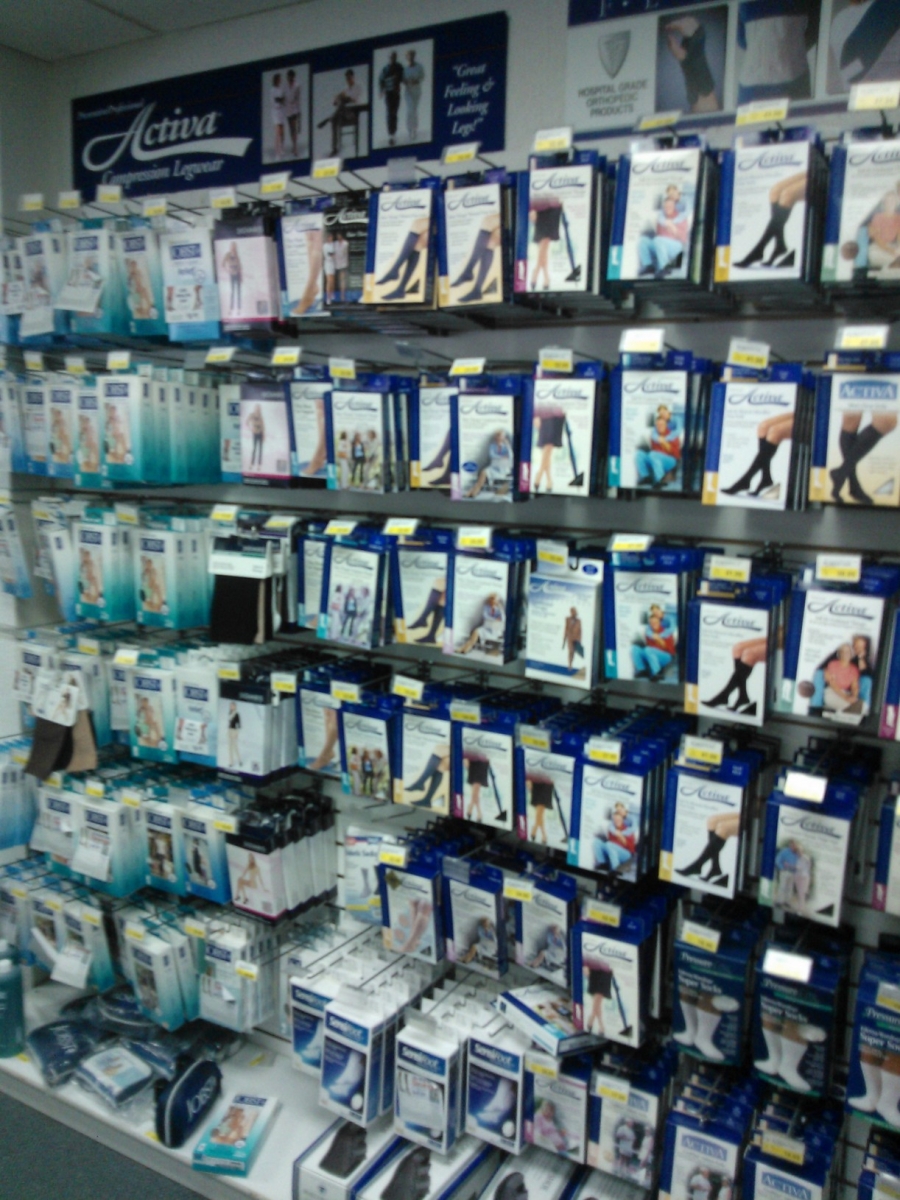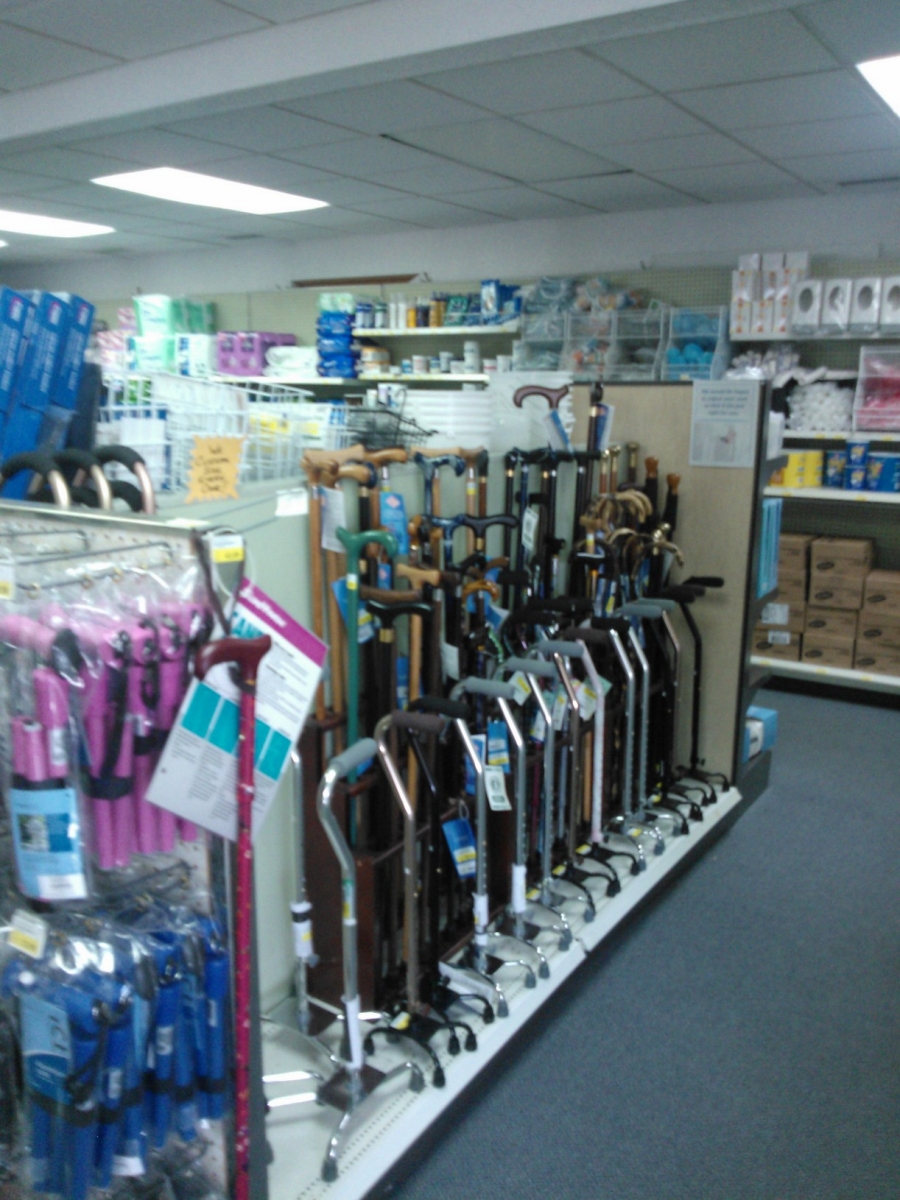Sometimes, you have to know what to lose to keep your business going and growing. For Bellevue, Wash.-based RxTra Care Pharmacy, which also has a significant home medical equipment segment, it was Medicare-reimbursed HME and supplies.
The 10-year-old company let the majority of such products go after purchasing a Bellevue pharmacy in 2004 that also had a well-established HME arm. At the time, competitive bidding, crippling oxygen and wheelchair reimbursement cuts and increased regulations were all looming—and owner and pharmacist Holly Henry and Kevin Clark, the company operations manager who specializes in HME and home health care products, saw the writing on the wall.
“The store was doing heavy (HME), everything from hospital beds down to a reacher,” Clark recalled. “Approximately 55 to 60 percent was billed to a third party, meaning Medicare and other thirds. We have essentially reversed (that percentage) since then.”
Now, most of RxTra Care’s HME sales are through credit or debit cards, though the company does work with insurance companies for HME items. Competitive bidding is not a factor for the company, which has greatly reduced its exposure to bid items and therefore decided not to participate in the program.
“Cash is better than a third party any day of the week,” Clark said.
 Getting Here from There
Getting Here from There
Finding a safe haven is tough in the HME world, but RxTra Care appears to have created one by carving niches both in the pharmacy and HME arenas.
The company was started in 2002 by Henry, an independent pharmacy owner since 1985 and a former president of the National Community Pharmacists Association. While at one time RxTra Care had five locations, that number has been whittled down to three. One is in Bellevue, and the other two are across Lake Washington in Seattle.
Each has a unique toehold in its area:
RxTra Care at Providence Mount St. Vincent is an in-house pharmacy at a venerable Seattle care community for older adults, which was started in 1924 by the Sisters of Providence and the Providence Health System. RxTra Care provides custom-packed medications, medication therapy management reviews for each resident and offers consultation services. It even runs a small gift shop.
RxTra Care View Ridge is located in the Wedgewood/View Ridge neighborhood in Seattle, and is a cash only pharmacy. It features a compounding lab and provides custom-packed medications, incontinence supplies, HME, aids for daily living and catheter supplies to the adult family care homes that have proliferated in the area, Clark said.
RxTra Care U & I in Bellevue is a 5,000-square-foot store featuring a pharmacy and the company’s most expansive HME section, along with wound care, support hosiery, incontinence products, bracing and bath products. The pharmacy is a traditional walk-up that also does compliance packaging of medications for about 150 adult family care homes.
Additionally, RxTra Care holds King County 340B public health contracts to provide medications from a separate inventory paid for by the county, Clark said.
A wide variety of HME products and displays are featured in the RxTra Care location in Bellevue, which has the most expansive selection of HME goods.
 Building the pharmacy segment of the business has been about creating strategic alliances with other entities, such as the long-term-care facility and the adult family care homes, and getting involved in the 340B program. RxTra Care’s efforts to stabilize and build its HME business have focused largely on identifying ways for the company to minimize its reliance on third-party payers such as Medicare and maximize its bottom line, according to Clark.
Building the pharmacy segment of the business has been about creating strategic alliances with other entities, such as the long-term-care facility and the adult family care homes, and getting involved in the 340B program. RxTra Care’s efforts to stabilize and build its HME business have focused largely on identifying ways for the company to minimize its reliance on third-party payers such as Medicare and maximize its bottom line, according to Clark.
With sliding reimbursements, the threat of competitive bidding and a host of other Medicare threats, “we needed to focus on lines of merchandise that were cash and were going to remain cash,” Clark said. After looking at the HME climate and the company’s financials, he added, “it was relatively obvious what categories made sense for us to focus on.”
For example, early on, he could see that providing oxygen was not going to work well for the company.
“In looking at our specialty and what our emphasis was both locally and also looking at it nationally, I saw that with the oxygen, we were such a small player and with the changes I foresaw, it wasn’t something we could capitalize on fully,” he said.
Fortuitously, an independent oxygen company that wanted to dispense with its pharmacy and pick up more oxygen patients approached RxTra Care with just that suggestion.
“They gave us their prescription files, we gave them our oxygen files,’’ Clark said. “It worked well for us. We were both small, and we couldn’t be competitive with the nationals.”
The company also decided to drop ostomy products except for those ordered by customers.
 “We eventually got out of ostomy,” Clark said. “We had about 20 feet of ostomy supplies in (the Bellevue) store and the margins are so skinny and there are so many different items—the spread is so large—and the dollars are so large with that inventory, that it didn’t make sense anymore to stock those items. We continue to do urologicals because there is still an OK margin in that.”
“We eventually got out of ostomy,” Clark said. “We had about 20 feet of ostomy supplies in (the Bellevue) store and the margins are so skinny and there are so many different items—the spread is so large—and the dollars are so large with that inventory, that it didn’t make sense anymore to stock those items. We continue to do urologicals because there is still an OK margin in that.”
Eliminating certain product lines was not without some residual loss, Clark acknowledged. “We have lost some business to competitors, sometimes by design,” he said. “If it is something that doesn’t economically make sense, it is OK with me if that person goes elsewhere and I can trade those dollars for more profitable dollars.”
Clark also identified product categories that could be expanded.
“I looked at bathroom safety, which is generally not reimbursable. I tried to have a good, better, best for every item in my 16-foot bath safety section, so there were selections and options available for consumers.”
Lift chairs also sold, but typically, there was generally only one on the floor. So, believing that “if one is good, then six or eight must be a lot better,” Clark boosted the inventory of lift chairs.
“What followed was a significant increase in the sale of lift chairs,” he said. “Our best year was 2010 in the height of the economic downturn. We sold over 75 chairs. That may not seem like a lot, but to a 5,000-square-foot pharmacy, that was.”
Most years, he said, RxTra Care sells between 30 and 50 lift chairs.
Clark also expanded wound care products beyond bandages and gauze dressings. He built up his support hosiery section and also invested in shoes for those with diabetes or foot problems.
Traditionally at RxTra Care, Clark said, such shoes were dispensed by the pharmacist. But the pharmacists were always busy, so he took a different tact and trained four of the company’s employees to be shoe fitters. He himself went through advanced training in fitting shoes and then began building the business by spreading the word that RxTra Care specialized in shoes for people with foot problems.
"It has worked well,” he said, noting that 60 percent of the shoes RxTra Care sells are for people with foot problems, not diabetics, and are therefore cash sales.
Looking Forward
Clark emphasized that while RxTra Care has eliminated some elements of HME, it still provides a variety of products. That’s in keeping with the company philosophy, “which is kind of our tagline—‘Count on us to do more than count pills,’” Clark said. That means “excellent customer service, a broad choice of products.”
“We still do wheelchair rentals, we still do rollators, hospital bed rentals, Hoyer lifts,” he said.
The difference is that those are largely cash transactions and Medicare is no longer involved.
That could be a boon when the baby boomers begin crowding the marketplace. Already, Clark said, RxTra Care is seeing members of that generation, who often are caregivers for their parents and/or their children, needing products and services.
 “They are interested in getting what they want when they want it,” he said. “They don’t always want to wait for insurance, and they sometimes want something that is a step above or has more bells and whistles.”
“They are interested in getting what they want when they want it,” he said. “They don’t always want to wait for insurance, and they sometimes want something that is a step above or has more bells and whistles.”
That’s where his good, better, best strategy is paying off, he said.
Indeed, all of the company’s tactics have paid off, boosting the bottom line, and, Clark said, stabilizing what RxTra Care is known for.
Not that the company is trouble-free. While Clark believes that RxTra Care’s multiple avenues of business—HME, pharmacy, compounding, 340B, alliances with the long-term-care facility and adult care homes—have created a strong foundation for an enduring business, he acknowledged that there is a major challenge: cash flow.
“I don’t know anything that is going to stabilize that,” he said, “especially on the pharmacy side. There is less and less cash pharmacy business. I think less than 3 percent is cash, and that means 97 percent is billed. And you don’t always get paid right away. That’s our daily struggle.
“A good reimbursement timeline is two weeks. But that is not very common,” he said.
Still, he believes that RxTra Care is on the right track for a stable future, particularly when it comes to HME. Clark foresees the overall industry moving toward third-party payers.
“It’s going to … be more and more difficult for (businesses) to sharpen their pencils and figure out what makes sense,” he said.
So RxTra Care’s route is different.
“Retail, retail, retail. Find the niche people are looking for and fill it,” Clark said. “I believe that is true in both the pharmacy side and the (HME) side. Figure out what the big-box store is not doing well and fill that void if it makes economic sense.”
HomeCare, March 2012
